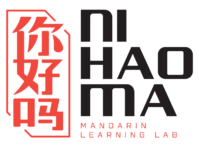Asking questions is a key skill for effective communication. To master this, you need to have a solid understanding of interrogative pronouns — a group of words that play a crucial role in forming questions. So, what are Chinese interrogative pronouns and how do you use them? Let’s dive in with Ni Hao Ma!
What Are Interrogative Pronouns in Chinese?
Interrogative pronouns (疑问代词) are words used to ask questions and seek information about people, objects, places, time, reasons, methods, and more.

Interrogative pronouns are words we use to specify the type of information or issue we want to learn about. In communication, knowing how to use interrogative pronouns in Chinese helps us seek information effectively and clarify any uncertainties proactively.
How to Use Chinese Interrogative Pronouns
Chinese interrogative pronouns function similarly to those in English or Vietnamese. However, are their positions and grammatical rules the same as in our native language? What are the common interrogative pronouns in Chinese that you need to know? Let’s explore them with Ni Hao Ma!
1. The Interrogative Pronoun 谁 (shéi) – Who?
The Chinese interrogative pronoun 谁 (shéi) translates to “Who?” It is used to ask questions about the identity of a person. It often appears in questions related to the subject, object or possession.
| Usage Scenarios | Structure | Examples |
|---|---|---|
| 谁 as the Subject – Asking about the person performing an action | 谁 + Verb? | 谁在敲门? (Shéi zài qiāo mén?) Who is knocking on the door? 谁去了上海? (Shéi qù le Shànghǎi?) Who went to Shanghai? |
| 谁 as the Object – Asking about the person affected by the action | Subject + Verb + 谁? | 他喜欢谁? (Tā xǐhuān shéi?) Who does he like? 你看见谁了? (Nǐ kànjiàn shéi le?) Who did you see? |
| 谁 + 的 (de) – Asking about possession | 谁的 + Noun? | 这是谁的书? (Zhè shì shéi de shū?) Whose book is this? |

2. The Interrogative Pronoun 哪 (nǎ) – Which, What, Where?
The Chinese interrogative pronoun 哪 (nǎ) means “which” or “where.” It is used to ask about choices, identify specific objects, or inquire about locations. Depending on the context, 哪 can combine with other words to form natural and clear questions.
| Usage Scenarios | Structure | Examples |
|---|---|---|
| Asking About a Specific Object Note: 哪 (nǎ) can be combined with measure words such as 个 (ge), 本 (běn), or 只 (zhī) to specify the noun being referred to. | 哪 + Measure Word + Noun? | 你喜欢哪本书? (Nǐ xǐhuān nǎ běn shū?) Which book do you like? 哪个老师教得最好? (Nǎ ge lǎoshī jiào de zuì hǎo?) Which teacher teaches the best? 你是哪国人? (Nǐ shì nǎ guó rén?) Which country are you from? |
| Asking About a Location Note: 哪 is often paired with 里 (lǐ) to form 哪里 (nǎlǐ) or its shorter variation, 哪儿 (nǎr), which both mean “where.” | 哪里 / 哪儿 (nǎlǐ/nǎr) | 你住在哪里? (Nǐ zhù zài nǎlǐ?) Where do you live? 你在哪儿? (Nǐ zài nǎr?) Where are you? |
See more: 50+ Essential Chinese Measure Words
3. The Interrogative Pronoun 什么 (shénme) – What?
The Chinese interrogative pronoun 什么 (shénme) is one of the most commonly used question words, meaning “what.” It is used to ask about unknown objects, events, or information.
| Usage Scenarios | Structure | Examples |
|---|---|---|
| Asking About Objects or Events | Verb + 什么? | 你在做什么? (Nǐ zài zuò shénme?) What are you doing? 他说了什么? (Tā shuōle shénme?) What did he say? 你要买什么? (Nǐ yào mǎi shénme?) What do you want to buy? |
| Asking About Types or Categories | 什么 + Noun? | 你喜欢什么电影? (Nǐ xǐhuān shénme diànyǐng?) What type of movies do you like? 你喜欢什么颜色? (Nǐ xǐhuān shénme yánsè?) What color do you like? |
| Asking About Time – used with 时候 (shíhòu) | 什么 + 时候 (shíhòu)? | 你什么时候回家? Nǐ shénme shíhòu huí jiā? When will you go home? 这个活动什么时候开始? Zhège huódòng shénme shíhòu kāishǐ? When will this event start? |
| Expressing Surprise | 什么? | 什么?你不知道这个?(Shénme? Nǐ bù zhīdào zhège?) What? You don’t know this? |
4. The Interrogative Pronoun 为什么 (wèishénme) – Why?
The Chinese interrogative pronoun 为什么 (wèishénme) means “why” and is used to inquire about the reason or cause behind an action or event.
| Usage Scenarios | Structure | Examples |
|---|---|---|
| Asking About the Cause of an Action or Event | 为什么 + Clause + ? | 为什么他不喜欢这个电影? (Wèishénme tā bù xǐhuān zhège diànyǐng?) Why doesn’t he like this movie? 为什么你不去吃饭? (Wèishénme nǐ bù qù chīfàn?) Why don’t you go eat? 为什么你不参加会议? (Wèishénme nǐ bù cānjiā huìyì?) Why don’t you attend the meeting? |
To make your question more polite, you can add 请问 (qǐngwèn), meaning “May I ask,” before 为什么. For example:
请问,为什么他不喜欢这个电影?
(Qǐngwèn, wèishénme tā bù xǐhuān zhège diànyǐng?)
May I ask, why doesn’t he like this movie?

5. The Interrogative Pronoun 怎么 (zěnme) – How, Why, In What Way
The interrogative pronoun 怎么 (zěnme) is a commonly used word in Chinese that means “how?” or “in what way?”. It is often employed to ask about methods, ways, or the condition of an action or event.
| Usage Scenarios | Structure | Examples |
|---|---|---|
| Asking how to do something | 怎么 (zěnme) + Verb | 你怎么做这个菜? (Nǐ zěnme zuò zhège cài?) How do you make this dish? 你怎么解这道题? (Nǐ zěnme jiě zhè dào tí?) How do you solve this problem? |
| Asking about the condition of something or someone’s opinion Note: When asking about the situation, evaluation, or feelings, 怎么 is often paired with 样 (yàng) to form 怎么样 (zěnme yàng). | 怎么 (zěnme) + 样 (yàng) | 你今天怎么样? (Nǐ jīntiān zěnme yàng?) How are you today? 你最近工作怎么样? (Nǐ zuìjìn gōngzuò zěnme yàng?) How’s your work going recently? |
| Asking about reasons | Subject + 怎么 (zěnme) + Verb | 你怎么这么难过? (Nǐ zěnme zhème nánguò?) Why are you so sad? 他怎么生气了? (Tā zěnme shēngqì le?) Why is he angry? |
6. The Interrogative Pronoun 几 (jǐ) – How Many, How Much
The Chinese interrogative pronoun 几 (jǐ) is used to ask about “how many” or “how much”, typically when referring to small or limited quantities. It is often used for quantities under 10 and paired with countable nouns.
| Usage Scenarios | Structure | Examples |
|---|---|---|
| Asking about quantities | 几 (jǐ) + Measure Word + Noun? | 你有几个苹果? (Nǐ yǒu jǐ gè píngguǒ?) How many apples do you have? 这个班有几个学生?(Zhège bān yǒu jǐ gè xuéshēng?) How many students are in this class? |
| Asking about time | 几 (jǐ) + Time Word (hour, day, month, etc.) | 现在几点了? (Xiànzài jǐ diǎn le?) What time is it now? 你生日是几月几号? (Nǐ shēngrì shì jǐ yuè jǐ hào?) When is your birthday (month and day)? 你一周上几天班? (Nǐ yīzhōu shàng jǐ tiān bān?) How many days a week do you work? |
| Asking about age | 几 (jǐ) + 岁 (suì) | 他几岁了? (Tā jǐ suì le?) How old is he? |
Explore: How To Introduce Yourself In Chinese

7. The Interrogative Pronoun 多少 (duōshǎo) – How much/How many?
The Chinese interrogative pronoun 多少 (duōshǎo) is used to ask about quantity, price, or the extent of something. It can inquire about an unspecified or unlimited amount and is often used when asking about larger quantities compared to 几 (jǐ).
Unlike the interrogative pronoun 几 (jǐ), which is used with countable nouns, 多少 (duōshǎo) can be used with both countable and uncountable nouns.
| Usage Scenarios | Structure | Examples |
|---|---|---|
| Asking about price | 多少 (duōshǎo) + 钱 (qián) | 这件衣服多少钱? (Zhè jiàn yīfú duōshǎo qián?) How much is this shirt? 你每个月赚多少钱? (Nǐ měi gè yuè zuàn duōshǎo qián?) How much money do you make each month? |
| Asking about quantity | 多少 (duōshǎo) + Noun | 你有多少本书? (Nǐ yǒu duōshǎo běn shū?) How many books do you have? 多少人? (Duōshǎo rén?) How many people? |
| Asking for a phone number | 多少 (duōshǎo) | 你的电话号码是多少? Nǐ de diànhuà hàomǎ shì duōshǎo? What is your phone number? |
Note: The interrogative pronoun 多少 (duōshǎo) is not used to ask about someone’s age. To ask about age, use 几 (jǐ) or 多大 (duō dà).
Other Ways to Ask Questions in Chinese
In addition to using interrogative pronouns, you can also ask questions in Chinese without using them.
1. Using the question particle 吗 (ma)
This method does not use an interrogative pronoun but simply adds the particle “吗 (ma)” at the end of a statement to turn it into a question.
Examples:
- 你是学生吗? (Nǐ shì xuéshēng ma?)
(Are you a student?) - 他喜欢吃水果吗? (Tā xǐhuān chī shuǐguǒ ma?)
(Does he like eating fruit?)

2. Using the phrase 是不是 (shì bù shì)
The phrase 是不是 (shì bù shì) means “is it or not?” or “right?”. You can use this phrase in a question to confirm or verify information.
Examples:
- 你是学生是不是? (Nǐ shì xuéshēng shì bù shì?)
You are a student, right? - 你今天很忙,是不是? (Nǐ jīntiān hěn máng, shì bù shì?)
You’re very busy today, aren’t you?
3. Negative Choice Questions
In Chinese, a negative choice question is a special type used to confirm information or present two options. The structure typically involves two opposing parts, forming a pair of alternatives:
S + Verb + 还是 (háishì) + 不 (bù) + Verb?
Examples:
- 你去还是不去? (Nǐ qù háishì bù qù?)
Are you going or not? - 我们现在走还是等一下? (Wǒmen xiànzài zǒu háishì děng yīxià?)
Shall we go now or wait a bit?
In negative choice questions, 还是 (háishì) is used to connect the two possible choices. Sometimes, 还是 can be omitted for brevity, but the context remains clear enough for the listener to understand.
Example:
我们走不走? (Wǒmen zǒu bù zǒu?)
Shall we go or not?
In this example, 还是 (háishì) has been omitted, but the sentence remains clear and understandable.
4. Raising Your Tone
When you want to turn a statement into a question, you can raise your tone at the end of the sentence without needing to add a question word. This is a very common method in daily conversation and is often used when you want to confirm something that has already been said or when you are uncertain about the information.
Example:
A: 他来了。 (Tā lái le.) – He has arrived.
B: 他来了? (Tā lái le?) – He has arrived? (Asking for confirmation)
Conclusion
Chinese interrogative pronouns are an essential part of learning Chinese, helping you communicate and interact effectively with others. In this article, Ni Hao Ma has introduced you to the most common interrogative pronouns in Chinese and how to use them.
We hope this article has provided useful knowledge and helped you understand how to use interrogative pronouns more accurately. To learn more about different types of words and practice pronunciation, check out our Chinese speaking courses now!



